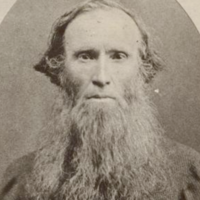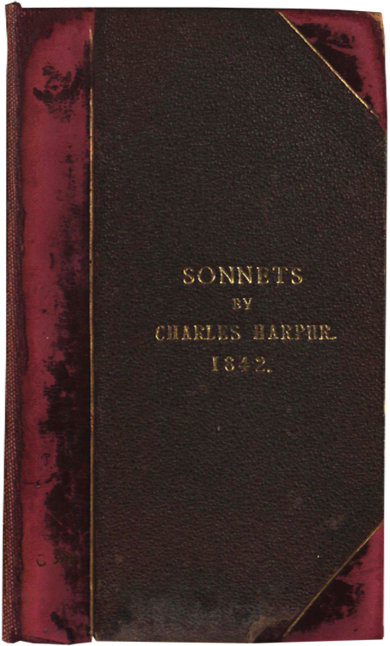The Nevers of Poetry
Never say aught in verse, or grave or gay,
That you in prose would hesitate to say.
Never in rhyme pretend to tears, unless
True feeling sheds them in unfeigned distress;
Or some dream-grief, with such a mournful strain
As night winds make in pine tops, stirs your brain,
To shake them, dew-like, o’er the flowers that bloom
In the wild dark, round Joy’s imagined tomb;
Or save when doubts that over Love may lower,
Like summer clouds, break in a sunny shower
Out of your gladdened eyes, to freshen all
The bowers of memory with their grateful fall.
Never too much affect that polished thing—
Once belauded—known as point, or sting.
The highest and the noblest growths of wit
Are never, or but seldom, touched with it.
For of the muse it is not truly born
Unless the apex of some burst of scorn,
Or irony, or hate all torture-torn!
Not to increase the passion, but to make
The wave, full surging, on its object break.
Never, if you’d be readable at all,
Aim overmuch at being ethical.
Though she should be a teacher, still the Muse
To be a mere schoolmistress should refuse.
She should instruct us, but her methods never
Be academic ones, however clever.
Her morals, like great nature’s morals, aye
Should work themselves out in an unforced way,
And not so patly as to hint the while
At cryptic ingenuities of style.
Whate’er the theme, her ethic lights should shine
Full forth, as from a central heat divine,
Or heat inherent to the passion, wrought
Into the chastened harmony of thought;
And not be mere extraneous coals of fire
Blown for the nonce into factitious ire.
Though sone has oft some beauty most divine,
Which well we feel, yet cannot well define—
Some yearning excellence, intense and far,
Coming and going like a clouded star—
Some awful glory we but half descry,
Like a strong sunset in a stormy sky—
Yet ne’er be murky of set purpose, since
You only thereby shall the more evince
That even the Sublime’s but then made sure
When, like a morning alp, it breaks from the obscure.
Never heed whether a line strictly goes
By learned rule, if, brook-like, it warble as it flows,
Or if, in concord with the thought, it fills
Fast forward, like a torrent fast flooding from the hills.
Never say aught is “fading like a star”
Because receding in the past afar,
Since stars do not fade, but shine on no less,
Thought lost in light to our weaksightedness;
And no true trope should ever rest on fancy,
But claim a universal relevancy;
Nor think a line is racy to the core,
And bold, and bravely eloquent, the more
It striving seems to tear itself asunder,
Like this—“Down there i’ the deep heart o’ the thunder,”
But for which, surely (out of chaos), none
Might feign to find a sanction, save in fun.
Never think harshness the best foil to raise
And relish sweetness; for love craggy lays.
Yet never be you glib, when passion’s force
Should ridge your style, as by a tempest hoarse
The deep is roughened into waves that roar
At heaven—upheaping, huddling, more and more,
To burst at last in booming thunder on the shore.
Never be such a pagan as to deem
That truth or beauty must diviner seem
For some abnormal set-off, hunched and rude,
Prowling for evil in the neighbourhood,
If such strange opposite breathe not the air
Of nature—being found, not conjured there;
And never to be graceless be you fain,
Till to be graceful you have tried in vain.
Never be cheated—never may you be!—
Into the cramp belief that poesy
Must of necessity in soul be one
With the mere form of verse if it but deftly run;
Or pour, as with a mill-wheel’s vigorous cheer,
A rhyming clatter hard upon the ear.
Never believe that verse a license knows
For aught that would be balderdash in prose,
Or that all reason may at any time
Find a sufficient substitute in rhyme;
Or that because with many words you re fraught,
There must be under them some flood of thought.
Never compel a simile that wont
Take service without forcing; if it don t,
As of itself, into your verses flow,
But true to liberty—and let it go.
Never reject a homely-sounding phrase,
That your whole meaning easily conveys,
For one made current by some courtly wit
Which barely indicates a shade of it,
Or which—for probably it so may fall—
Does not express what you would mean at all.
Never suppose that you in song are free
To strain all praise, and make it flattery.
To sing of the heroic is to raise
One value by another—but to praise
Mere clowns, in verse, or natures lean and cold,
Is like to setting gravel stones in gold.
Never exalt vagaries to a station
But due to flights of the imagination—
Gas-charged balloons, put vainly all a-bloat,
For clouds of God that in the orient float;
Theatric thunders, all set brattling for
The dread all-shaking tempest-trumps of Thor;
For in the end all charlatanry must,
The more it startle, but the more disgust.
And lastly, never take for gospel all
Your friends say of your genius, when they call
Its merits o’er; but at the same time see
That you do never take yourself to be
So great an ass as your known foes declare
They do most solemnly believe you are.
[Each embryo poet, profit by my strain!
Then shall men say, “He has not lived in vain! ”]



